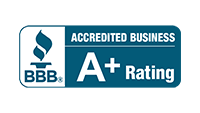
Recruiting the right employees is one of the most critical tasks for any company. Finding the right fit can be challenging and time-consuming, but it is crucial for long-term success. In today’s job market, candidates have many resources to evaluate potential employers. It’s no longer just about the salary and benefits package. Job seekers are looking for a company culture that aligns with their values and a mission that they can stand behind. This post highlights the importance of company culture and reputation in recruitment and how companies can leverage these factors to attract top talent.
The Importance of Company Culture
According to a survey by Glassdoor, 80% of young employees look at company culture to ensure a good fit. Culture encompasses an organization’s values, beliefs, and attitudes, and it can significantly impact job satisfaction and retention. A strong company culture can attract like-minded individuals with the same values and goals, leading to a more productive and cohesive team. On the other hand, a toxic culture can drive away top talent and lead to high turnover rates.
Companies must prioritize employee well-being and engagement to build a positive company culture. Providing opportunities for growth and development, fostering open communication and transparency, and promoting work-life balance are essential components of a healthy work environment. Companies must also ensure that their culture is reflected in their hiring practices and that they bring in individuals who share their values.
The Role of Mission Statements
In addition to company culture, job seekers also look at a company’s mission statement before applying. According to a survey by Indeed, 79% of job seekers will consider a company’s mission statement before applying. A mission statement summarizes an organization’s purpose and values and can communicate the company’s direction and goals to potential employees.
A clear and concise mission statement can attract candidates with the same values and goals. It can also help employees feel a sense of purpose and connection to the company’s overall vision. Companies should ensure that their mission statement is well-defined, easily understood, and aligned with their culture and goals.
The Impact of Reputation
In today’s digital age, job seekers can access a wealth of information about potential employers. According to a survey by CareerBuilder, 75% of candidates will research a company’s reputation before applying. Various factors impact a company’s reputation, including customer reviews, media coverage, and employee experiences.
A negative reputation can deter top talent from applying, even with a competitive salary and benefits package. According to a survey by Monster, 50% of job seekers say they wouldn’t work for a company with a bad reputation, even with a pay increase. Therefore, companies must prioritize their reputation management and ensure they provide a positive experience for their employees and customers.
The Role of Social Media
Social media has become a valuable tool for job seekers to evaluate potential employers. According to a survey by Jobvite, 62% of job seekers use social media to evaluate potential employers. Social media platforms like LinkedIn, Twitter, and Facebook can provide insight into a company’s culture, values, and reputation.
Companies must ensure their social media presence is professional and aligned with their brand. They should also encourage employees to share their experiences and promote the company on social media. A positive social media presence can help attract top talent and improve a company’s reputation.
Conclusion
Recruiting the right employees is crucial for any company’s success, and in today’s job market, job seekers are looking beyond just the salary and benefits package. Company culture, mission statements, reputation, and social media all play a significant role in attracting top talent.
Companies must prioritize employee well-being and engagement, define their mission and values, manage their reputation, and maintain a positive social media presence to stand out in a crowded job market.





